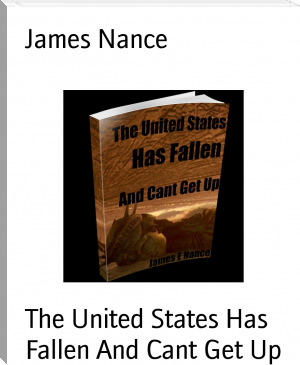The Prince - Niccolò Machiavelli (the beginning after the end novel read .TXT) 📗

- Author: Niccolò Machiavelli
Book online «The Prince - Niccolò Machiavelli (the beginning after the end novel read .TXT) 📗». Author Niccolò Machiavelli
and when the people, her enemy, were allied with foreigners. Therefore, it would have been safer for her, both then and before, not to have been hated by the people than to have had the fortresses. All these things considered then, I shall praise him who builds fortresses as well as him who does not, and I shall blame whoever, trusting in them, cares little about being hated by the people.
(*) Catherine Sforza, a daughter of Galeazzo Sforza and
Lucrezia Landriani, born 1463, died 1509. It was to the
Countess of Forli that Machiavelli was sent as envy on 1499.
A letter from Fortunati to the countess announces the
appointment: "I have been with the signori," wrote
Fortunati, "to learn whom they would send and when. They
tell me that Nicolo Machiavelli, a learned young Florentine
noble, secretary to my Lords of the Ten, is to leave with me
at once." Cf. "Catherine Sforza," by Count Pasolini,
translated by P. Sylvester, 1898.
CHAPTER XXI -- HOW A PRINCE SHOULD CONDUCT HIMSELF SO AS TO GAIN RENOWN
Nothing makes a prince so much esteemed as great enterprises and setting a fine example. We have in our time Ferdinand of Aragon, the present King of Spain. He can almost be called a new prince, because he has risen, by fame and glory, from being an insignificant king to be the foremost king in Christendom; and if you will consider his deeds you will find them all great and some of them extraordinary. In the beginning of his reign he attacked Granada, and this enterprise was the foundation of his dominions. He did this quietly at first and without any fear of hindrance, for he held the minds of the barons of Castile occupied in thinking of the war and not anticipating any innovations; thus they did not perceive that by these means he was acquiring power and authority over them. He was able with the money of the Church and of the people to sustain his armies, and by that long war to lay the foundation for the military skill which has since distinguished him. Further, always using religion as a plea, so as to undertake greater schemes, he devoted himself with pious cruelty to driving out and clearing his kingdom of the Moors; nor could there be a more admirable example, nor one more rare. Under this same cloak he assailed Africa, he came down on Italy, he has finally attacked France; and thus his achievements and designs have always been great, and have kept the minds of his people in suspense and admiration and occupied with the issue of them. And his actions have arisen in such a way, one out of the other, that men have never been given time to work steadily against him.
Again, it much assists a prince to set unusual examples in internal affairs, similar to those which are related of Messer Bernabo da Milano, who, when he had the opportunity, by any one in civil life doing some extraordinary thing, either good or bad, would take some method of rewarding or punishing him, which would be much spoken about. And a prince ought, above all things, always endeavour in every action to gain for himself the reputation of being a great and remarkable man.
A prince is also respected when he is either a true friend or a downright enemy, that is to say, when, without any reservation, he declares himself in favour of one party against the other; which course will always be more advantageous than standing neutral; because if two of your powerful neighbours come to blows, they are of such a character that, if one of them conquers, you have either to fear him or not. In either case it will always be more advantageous for you to declare yourself and to make war strenuously; because, in the first case, if you do not declare yourself, you will invariably fall a prey to the conqueror, to the pleasure and satisfaction of him who has been conquered, and you will have no reasons to offer, nor anything to protect or to shelter you. Because he who conquers does not want doubtful friends who will not aid him in the time of trial; and he who loses will not harbour you because you did not willingly, sword in hand, court his fate.
Antiochus went into Greece, being sent for by the Aetolians to drive out the Romans. He sent envoys to the Achaeans, who were friends of the Romans, exhorting them to remain neutral; and on the other hand the Romans urged them to take up arms. This question came to be discussed in the council of the Achaeans, where the legate of Antiochus urged them to stand neutral. To this the Roman legate answered: "As for that which has been said, that it is better and more advantageous for your state not to interfere in our war, nothing can be more erroneous; because by not interfering you will be left, without favour or consideration, the guerdon of the conqueror." Thus it will always happen that he who is not your friend will demand your neutrality, whilst he who is your friend will entreat you to declare yourself with arms. And irresolute princes, to avoid present dangers, generally follow the neutral path, and are generally ruined. But when a prince declares himself gallantly in favour of one side, if the party with whom he allies himself conquers, although the victor may be powerful and may have him at his mercy, yet he is indebted to him, and there is established a bond of amity; and men are never so shameless as to become a monument of ingratitude by oppressing you. Victories after all are never so complete that the victor must not show some regard, especially to justice. But if he with whom you ally yourself loses, you may be sheltered by him, and whilst he is able he may aid you, and you become companions on a fortune that may rise again.
In the second case, when those who fight are of such a character that you have no anxiety as to who may conquer, so much the more is it greater prudence to be allied, because you assist at the destruction of one by the aid of another who, if he had been wise, would have saved him; and conquering, as it is impossible that he should not do with your assistance, he remains at your discretion. And here it is to be noted that a prince ought to take care never to make an alliance with one more powerful than himself for the purposes of attacking others, unless necessity compels him, as is said above; because if he conquers you are at his discretion, and princes ought to avoid as much as possible being at the discretion of any one. The Venetians joined with France against the Duke of Milan, and this alliance, which caused their ruin, could have been avoided. But when it cannot be avoided, as happened to the Florentines when the Pope and Spain sent armies to attack Lombardy, then in such a case, for the above reasons, the prince ought to favour one of the parties.
Never let any Government imagine that it can choose perfectly safe courses; rather let it expect to have to take very doubtful ones, because it is found in ordinary affairs that one never seeks to avoid one trouble without running into another; but prudence consists in knowing how to distinguish the character of troubles, and for choice to take the lesser evil.
A prince ought also to show himself a patron of ability, and to honour the proficient in every art. At the same time he should encourage his citizens to practise their callings peaceably, both in commerce and agriculture, and in every other following, so that the one should not be deterred from improving his possessions for fear lest they be taken away from him or another from opening up trade for fear of taxes; but the prince ought to offer rewards to whoever wishes to do these things and designs in any way to honour his city or state.
Further, he ought to entertain the people with festivals and spectacles at convenient seasons of the year; and as every city is divided into guilds or into societies,(*) he ought to hold such bodies in esteem, and associate with them sometimes, and show himself an example of courtesy and liberality; nevertheless, always maintaining the majesty of his rank, for this he must never consent to abate in anything.
(*) "Guilds or societies," "in arti o in tribu." "Arti" were
craft or trade guilds, cf. Florio: "Arte . . . a whole
company of any trade in any city or corporation town." The
guilds of Florence are most admirably described by Mr
Edgcumbe Staley in his work on the subject (Methuen, 1906).
Institutions of a somewhat similar character, called
"artel," exist in Russia to-day, cf. Sir Mackenzie Wallace's
"Russia," ed. 1905: "The sons . . . were always during the
working season members of an artel. In some of the larger
towns there are artels of a much more complex kind--
permanent associations, possessing large capital, and
pecuniarily responsible for the acts of the individual
members." The word "artel," despite its apparent similarity,
has, Mr Aylmer Maude assures me, no connection with "ars" or
"arte." Its root is that of the verb "rotisya," to bind
oneself by an oath; and it is generally admitted to be only
another form of "rota," which now signifies a "regimental
company." In both words the underlying idea is that of a
body of men united by an oath. "Tribu" were possibly gentile
groups, united by common descent, and included individuals
connected by marriage. Perhaps our words "sects" or "clans"
would be most appropriate.
CHAPTER XXII -- CONCERNING THE SECRETARIES OF PRINCES
The choice of servants is of no little importance to a prince, and they are good or not according to the discrimination of the prince. And the first opinion which one forms of a prince, and of his understanding, is by observing the men he has around him; and when they are capable and faithful he may always be considered wise, because he has known how to recognize the capable and to keep them faithful. But when they are otherwise one cannot form a good opinion of him, for the prime error which he made was in choosing them.
There were none who knew Messer Antonio da Venafro as the servant of Pandolfo Petrucci, Prince of Siena, who would not consider Pandolfo to be a very clever man in having Venafro for his servant. Because there are three classes of intellects: one which comprehends by itself; another which appreciates what others comprehended; and a third which neither comprehends by itself nor by the showing of others;
(*) Catherine Sforza, a daughter of Galeazzo Sforza and
Lucrezia Landriani, born 1463, died 1509. It was to the
Countess of Forli that Machiavelli was sent as envy on 1499.
A letter from Fortunati to the countess announces the
appointment: "I have been with the signori," wrote
Fortunati, "to learn whom they would send and when. They
tell me that Nicolo Machiavelli, a learned young Florentine
noble, secretary to my Lords of the Ten, is to leave with me
at once." Cf. "Catherine Sforza," by Count Pasolini,
translated by P. Sylvester, 1898.
CHAPTER XXI -- HOW A PRINCE SHOULD CONDUCT HIMSELF SO AS TO GAIN RENOWN
Nothing makes a prince so much esteemed as great enterprises and setting a fine example. We have in our time Ferdinand of Aragon, the present King of Spain. He can almost be called a new prince, because he has risen, by fame and glory, from being an insignificant king to be the foremost king in Christendom; and if you will consider his deeds you will find them all great and some of them extraordinary. In the beginning of his reign he attacked Granada, and this enterprise was the foundation of his dominions. He did this quietly at first and without any fear of hindrance, for he held the minds of the barons of Castile occupied in thinking of the war and not anticipating any innovations; thus they did not perceive that by these means he was acquiring power and authority over them. He was able with the money of the Church and of the people to sustain his armies, and by that long war to lay the foundation for the military skill which has since distinguished him. Further, always using religion as a plea, so as to undertake greater schemes, he devoted himself with pious cruelty to driving out and clearing his kingdom of the Moors; nor could there be a more admirable example, nor one more rare. Under this same cloak he assailed Africa, he came down on Italy, he has finally attacked France; and thus his achievements and designs have always been great, and have kept the minds of his people in suspense and admiration and occupied with the issue of them. And his actions have arisen in such a way, one out of the other, that men have never been given time to work steadily against him.
Again, it much assists a prince to set unusual examples in internal affairs, similar to those which are related of Messer Bernabo da Milano, who, when he had the opportunity, by any one in civil life doing some extraordinary thing, either good or bad, would take some method of rewarding or punishing him, which would be much spoken about. And a prince ought, above all things, always endeavour in every action to gain for himself the reputation of being a great and remarkable man.
A prince is also respected when he is either a true friend or a downright enemy, that is to say, when, without any reservation, he declares himself in favour of one party against the other; which course will always be more advantageous than standing neutral; because if two of your powerful neighbours come to blows, they are of such a character that, if one of them conquers, you have either to fear him or not. In either case it will always be more advantageous for you to declare yourself and to make war strenuously; because, in the first case, if you do not declare yourself, you will invariably fall a prey to the conqueror, to the pleasure and satisfaction of him who has been conquered, and you will have no reasons to offer, nor anything to protect or to shelter you. Because he who conquers does not want doubtful friends who will not aid him in the time of trial; and he who loses will not harbour you because you did not willingly, sword in hand, court his fate.
Antiochus went into Greece, being sent for by the Aetolians to drive out the Romans. He sent envoys to the Achaeans, who were friends of the Romans, exhorting them to remain neutral; and on the other hand the Romans urged them to take up arms. This question came to be discussed in the council of the Achaeans, where the legate of Antiochus urged them to stand neutral. To this the Roman legate answered: "As for that which has been said, that it is better and more advantageous for your state not to interfere in our war, nothing can be more erroneous; because by not interfering you will be left, without favour or consideration, the guerdon of the conqueror." Thus it will always happen that he who is not your friend will demand your neutrality, whilst he who is your friend will entreat you to declare yourself with arms. And irresolute princes, to avoid present dangers, generally follow the neutral path, and are generally ruined. But when a prince declares himself gallantly in favour of one side, if the party with whom he allies himself conquers, although the victor may be powerful and may have him at his mercy, yet he is indebted to him, and there is established a bond of amity; and men are never so shameless as to become a monument of ingratitude by oppressing you. Victories after all are never so complete that the victor must not show some regard, especially to justice. But if he with whom you ally yourself loses, you may be sheltered by him, and whilst he is able he may aid you, and you become companions on a fortune that may rise again.
In the second case, when those who fight are of such a character that you have no anxiety as to who may conquer, so much the more is it greater prudence to be allied, because you assist at the destruction of one by the aid of another who, if he had been wise, would have saved him; and conquering, as it is impossible that he should not do with your assistance, he remains at your discretion. And here it is to be noted that a prince ought to take care never to make an alliance with one more powerful than himself for the purposes of attacking others, unless necessity compels him, as is said above; because if he conquers you are at his discretion, and princes ought to avoid as much as possible being at the discretion of any one. The Venetians joined with France against the Duke of Milan, and this alliance, which caused their ruin, could have been avoided. But when it cannot be avoided, as happened to the Florentines when the Pope and Spain sent armies to attack Lombardy, then in such a case, for the above reasons, the prince ought to favour one of the parties.
Never let any Government imagine that it can choose perfectly safe courses; rather let it expect to have to take very doubtful ones, because it is found in ordinary affairs that one never seeks to avoid one trouble without running into another; but prudence consists in knowing how to distinguish the character of troubles, and for choice to take the lesser evil.
A prince ought also to show himself a patron of ability, and to honour the proficient in every art. At the same time he should encourage his citizens to practise their callings peaceably, both in commerce and agriculture, and in every other following, so that the one should not be deterred from improving his possessions for fear lest they be taken away from him or another from opening up trade for fear of taxes; but the prince ought to offer rewards to whoever wishes to do these things and designs in any way to honour his city or state.
Further, he ought to entertain the people with festivals and spectacles at convenient seasons of the year; and as every city is divided into guilds or into societies,(*) he ought to hold such bodies in esteem, and associate with them sometimes, and show himself an example of courtesy and liberality; nevertheless, always maintaining the majesty of his rank, for this he must never consent to abate in anything.
(*) "Guilds or societies," "in arti o in tribu." "Arti" were
craft or trade guilds, cf. Florio: "Arte . . . a whole
company of any trade in any city or corporation town." The
guilds of Florence are most admirably described by Mr
Edgcumbe Staley in his work on the subject (Methuen, 1906).
Institutions of a somewhat similar character, called
"artel," exist in Russia to-day, cf. Sir Mackenzie Wallace's
"Russia," ed. 1905: "The sons . . . were always during the
working season members of an artel. In some of the larger
towns there are artels of a much more complex kind--
permanent associations, possessing large capital, and
pecuniarily responsible for the acts of the individual
members." The word "artel," despite its apparent similarity,
has, Mr Aylmer Maude assures me, no connection with "ars" or
"arte." Its root is that of the verb "rotisya," to bind
oneself by an oath; and it is generally admitted to be only
another form of "rota," which now signifies a "regimental
company." In both words the underlying idea is that of a
body of men united by an oath. "Tribu" were possibly gentile
groups, united by common descent, and included individuals
connected by marriage. Perhaps our words "sects" or "clans"
would be most appropriate.
CHAPTER XXII -- CONCERNING THE SECRETARIES OF PRINCES
The choice of servants is of no little importance to a prince, and they are good or not according to the discrimination of the prince. And the first opinion which one forms of a prince, and of his understanding, is by observing the men he has around him; and when they are capable and faithful he may always be considered wise, because he has known how to recognize the capable and to keep them faithful. But when they are otherwise one cannot form a good opinion of him, for the prime error which he made was in choosing them.
There were none who knew Messer Antonio da Venafro as the servant of Pandolfo Petrucci, Prince of Siena, who would not consider Pandolfo to be a very clever man in having Venafro for his servant. Because there are three classes of intellects: one which comprehends by itself; another which appreciates what others comprehended; and a third which neither comprehends by itself nor by the showing of others;
Free e-book «The Prince - Niccolò Machiavelli (the beginning after the end novel read .TXT) 📗» - read online now
Similar e-books:





Comments (0)